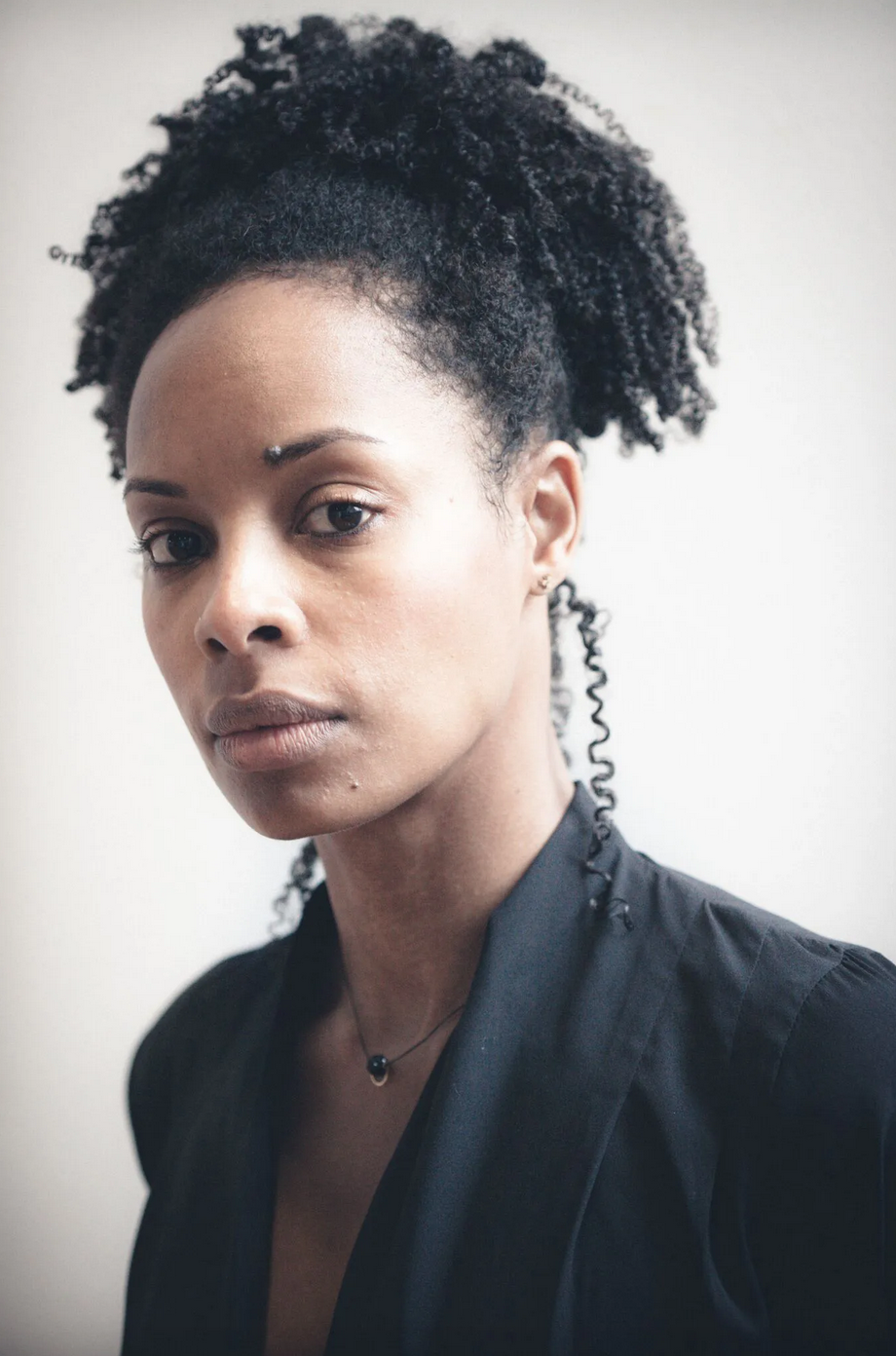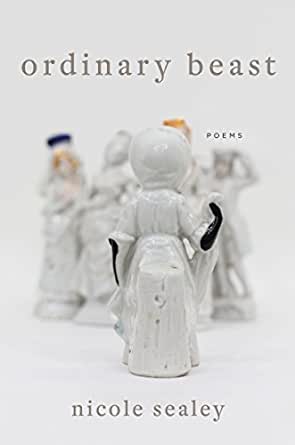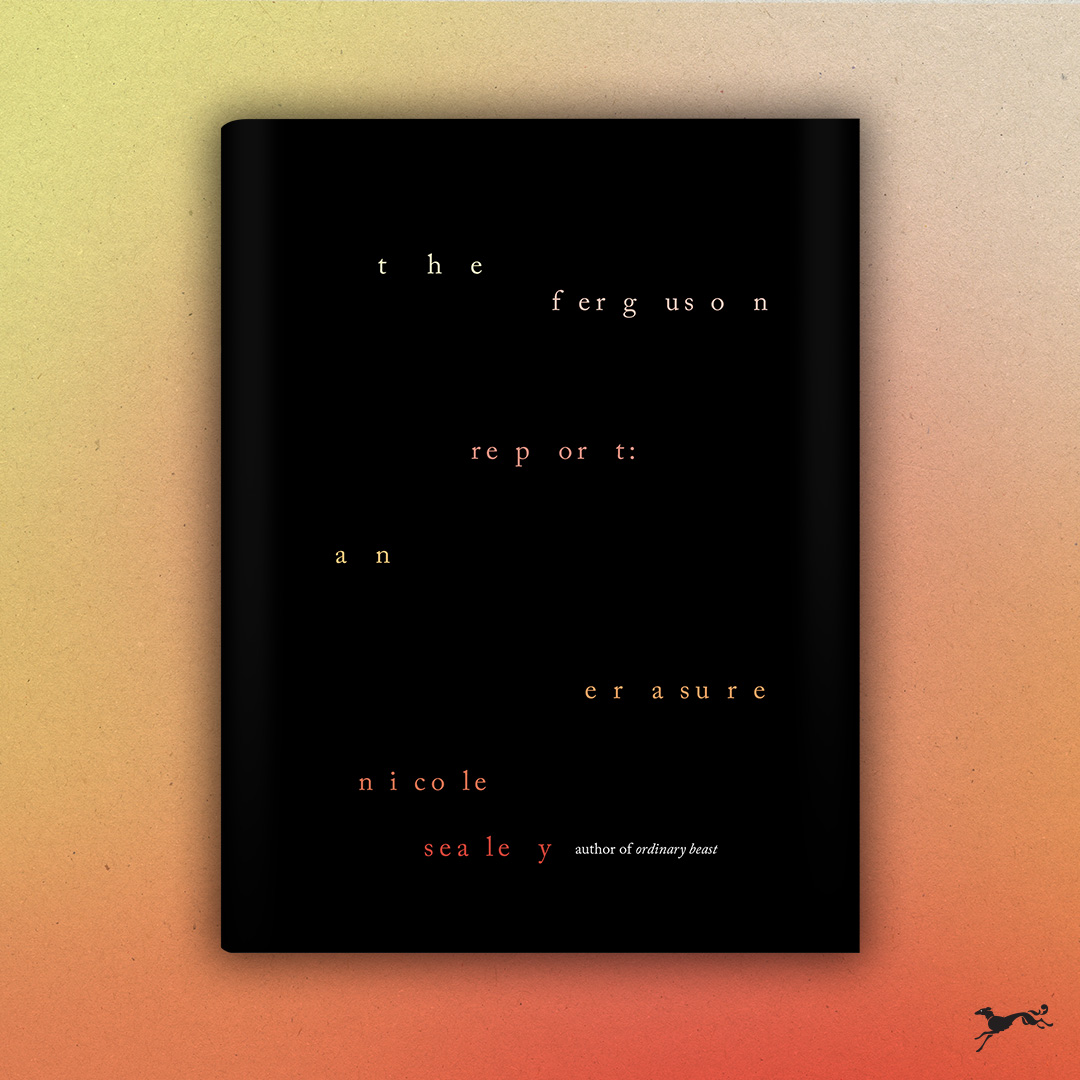

Nicole Sealey
Forward Prize
Former Executive Director of Cave Canem (2017-2019)


Readings &
Lecture Topics
- Seeing is Believing: Drafting the Lasting Image
- What is a Perfect Poem, and Why is it Brigit Pegeen Kelly’s “Song”
- An Evening with Nicole Sealey
Biography
“Nicole Sealey is one of today’s most interesting poets. She steers us on a fantastic voyage through her infinitely brilliant mind.” —Essence Magazine
“A balm for and protectant against the hazards of modernity.” –Publishers Weekly
“Nicole Sealey is a poet for the ages.”
—Tracy K. Smith
Nicole Sealey was born in St. Thomas, United States Virgin Islands, and raised in Apopka, Florida. She is the author of Ordinary Beast (Ecco, 2017), which was a finalist for the PEN Open Book Award and the Hurston/Wright Legacy Award. Her chapbook, The Animal After Whom Other Animals are Named (Northwestern University Press, 2016), was the winner of the 2016 Drinking Gourd Chapbook Prize.
Sealey’s latest project, The Ferguson Report: An Erasure, is forthcoming this summer from Penguin Random House. Excerpts of the erasure have appeared in The Paris Review, The Nation, and Poetry London, while “Pages 22-29, an excerpt from Ferguson Report: An Erasure” won the Forward Prize for Best Single Poem in 2021. About this collection, Yusef Komunyakaa said, “Nicole Sealey’s The Ferguson Report: An Erasure comes to us first in fragments—at times not even syllables, ah or id—but as a feeling, the unsayable constructing itself as we read along or listen. The paced rhythm is almost painfully made as if fleshy blips on the heart meter—a ghostly master text beneath. One feels subliminal truths cumulate out of a visceral engagement, and then the emergence of eight inspired poems.”
In his review of Sealey’s debut full-length collection, Ordinary Beast, Hamilton Cain noted, “Ordinary Beast showcases a versatile artist as she plumbs an array of themes — racial injustice and gender marginalization — by appropriating forms popularized by dead white guys: Plutarch, Shakespeare, Donne. Her variations are vigorous, beguiling. Ordinary Beast is a triumph, and we can look forward to future spectacular work from this extravagantly gifted poet.” Claudia Rankine observes, “Though these poems are attuned to their own devastation, they continue unapologetically with their own aspirations.”
Sealey’s honors include the 2021 Forward Prize for Best Single Poem, the 2021 Granum Foundation Prize, a Rome Prize from the American Academy in Rome, a Hodder Fellowship from Princeton University, the Stanley Kunitz Memorial and Poetry International Prizes, as well as fellowships from the Bogliasco Foundation, Bread Loaf Writers’ Conference, CantoMundo, Cave Canem, The Hermitage Artist Retreat, MacDowell, the National Endowment and New York Foundation for the Arts, and the Poetry Project.
Sealey served as the Executive Director at Cave Canem Foundation from 2017–2019. She is a visiting professor at Boston University and teaches in the MFA Writers Workshop in Paris program at New York University.
Short Bio
Nicole Sealey was born in St. Thomas, U.S.V.I. and raised in Apopka, Florida. She is the author of Ordinary Beast, finalist for the Hurston/Wright Legacy Award and the PEN Open Book Award, and The Animal After Whom Other Animals Are Named, winner of the Drinking Gourd Chapbook Poetry Prize. An excerpt from her forthcoming collection, The Ferguson Report: An Erasure, was awarded the Forward Prize for Best Single Poem. Her honors include a 2023-2024 Cullman Center Fellowship from the New York Public Library, a Rome Prize in Literature from the American Academy in Rome, a Hodder Fellowship from Princeton University, the Stanley Kunitz Memorial Prize from The American Poetry Review, and fellowships from CantoMundo, Cave Canem, the National Endowment for the Arts, and the New York Foundation for the Arts. Her work has appeared in various journals and anthologies including The New Yorker, Poetry London, and The Best American Poetry (2018 and 2021). She was the Executive Director at Cave Canem Foundation from 2017–2019. She is a visiting professor at Boston University and teaches in the MFA Writers Workshop in Paris program at New York University.
Visit Author WebsiteVideos
Publications
The Ferguson Report: An Erasure
Poetry, 2023
In August 2014, Michael Brown—a young, unarmed black man—was shot to death by a police officer in Ferguson, Missouri. What followed was a period of protests and turmoil, culminating in an extensive report that was filed by the Department of Justice detailing biased policing and court practices in the city. It is a document that exposes the racist policies and procedures that have become commonplace—from disproportionate arrest rates, to flagrant violence directed at the Black community. It is a report that remains as disheartening as it is damning. Now, award-winning poet Nicole Sealey revisits the investigation in a book that redacts the report, an act of erasure that reimagines the original text as it strips it away. While the full document is visible in the background—weighing heavily on the language Sealey has preserved—it gives shape and disturbing context to what remains. Illuminating what it means to live in this frightening age, and what it means to bear witness, The Ferguson Report: An Erasure is an engrossing meditation on one of the most important texts of modern time.
Ordinary Beast
Poetry, 2017
“These are poems of thrilling sonic and syntactical play, formal dexterity, mythmaking, and delight in the ordinary rendered strange by new juxtapositions.” —Natasha Trethewey
The existential magnitude, deep intellect, and playful subversion of St. Thomas-born, Florida-raised poet Nicole Sealey’s work is restless in its empathic, succinct examination and lucid awareness of what it means to be human. The ranging scope of inquiry undertaken in Ordinary Beast—at times philosophical, emotional, and experiential—is evident in each thrilling twist of image by the poet. In brilliant, often ironic lines that move from meditation to matter of fact in a single beat, Sealey’s voice is always awake to the natural world, to the pain and punishment of existence, to the origins and demises of humanity. Exploring notions of race, sexuality, gender, myth, history, and embodiment with profound understanding, Sealey’s is a poetry that refuses to turn a blind eye or deny. It is a poetry of daunting knowledge.
The Animal After Whom Other Animals Are Named
Poetry, 2016
At turns humorous and heartbreaking, The Animal After Whom Other Animals Are Named explores in both formal and free verse what it means to die, which is to say, also, what it means to live. In this collection, Sealey displays an exquisite sense of the lyric, as well as an acute political awareness. Never heavy-handed or dogmatic, the poems included in this slim volume excavate the shadows of both personal and collective memory and are, at all points, relentless. To quote the poet herself, here is a debut as luminous and unforgiving “as the unsparing light at tunnel’s end.”
Articles & Audio
Read What’s In Print
• Every Poem Is a Love Poem to Something: An Interview with Nicole Sealey – Paris Review
• An Interview with Nicole Sealey – The Brooklyn Rail
• This poet’s obsession with death led her to write about how to live – PBS
Listen to Audio
• Nicole Sealey reads “And” – The Poetry Magazine Podcast
• Nicole Sealey, Plus: Return Reads – The American Poetry Review
• Black LatiNext with Nicole Sealey, John Murillo, and more – Haymarket Books Live
Selected Writings
• Read “Pages 22-29, an excerpt from The Ferguson Report: An Erasure” – Forward Arts
• Read “Object Permanence” by Nicole Sealey – American Poetry Review
• Read “A Violence” by Nicole Sealey – The New Yorker
• Read “medical history” – New York Times Magazine
The First Person Who Will Live to Be One Hundred and Fifty Years Old Has Already Been Born
[For Petra]
Scientists say the average human
life gets three months longer every year.
By this math, death will be optional. Like a tie
or dessert or suffering. My mother asks
whether I’d want to live forever.
“I’d get bored,” I tell her. “But,” she says,
“there’s so much to do,” meaning
she believes there’s much she hasn’t done.
Thirty years ago she was the age I am now
but, unlike me, too industrious to think about
birds disappeared by rain. If only we had more
time or enough money to be kept on ice
until such a time science could bring us back.
Of late my mother has begun to think life
short-lived. I’m too young to convince her
otherwise. The one and only occasion
I was in the same room as the Mona Lisa,
it was encased in glass behind what I imagine
were velvet ropes. There’s far less between
ourselves and oblivion—skin that often defeats
its very purpose. Or maybe its purpose
isn’t protection at all, but rather to provide
a place, similar to a doctor’s waiting room,
in which to sit until our names are called.
Hold your questions until the end.
Mother, measure my wide-open arms—
we still have this much time to kill.



